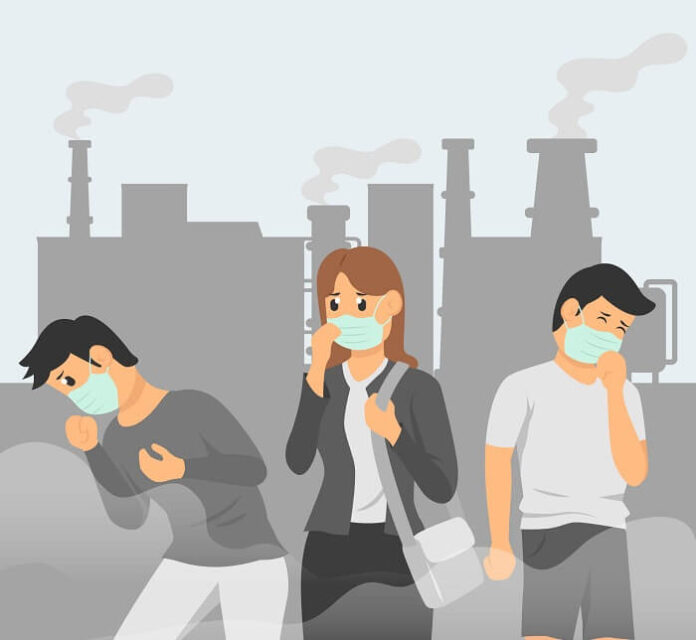Studies and scientific evidence confirm a direct link between air pollution and adverse health outcomes, especially during peak pollution periods. These conditions lead to an increase in acute respiratory diseases in India, according to Marina Belen Romanello, Executive Director of Lancet Countdown. Her remarks came amid discussions at a recent World Health Organization (WHO) conference in Colombia, where an Indian government report claimed there is “no direct correlation between air pollution and mortality.”
The Long-Term Health Impact of Air Pollution
Romanello highlighted the severe health consequences of air pollution, including lung cancer, cardiovascular diseases, and stroke. She emphasized, “There is undeniable evidence that air pollution harms people’s health at all stages of life. Governments must acknowledge the science and take action to clean the air. Doing so will lead to a healthier and more productive population.”
Contrasting Government Stances on Air Pollution
In July 2024, India’s Minister of State for Health, Anupriya Patel, stated in the Rajya Sabha that no conclusive data establishes a direct correlation between air pollution and mortality. She acknowledged that air pollution triggers respiratory ailments but argued that multiple factors—such as socio-economic status, immunity, and occupational habits—also influence health outcomes.
No Safe Level of Air Pollution
Romanello stressed that any level of air pollution is harmful and affects the lungs, blood system, and internal organs. She pointed out that WHO’s recommended safe air quality thresholds are exceeded across most Indian cities and rural areas, impacting both public health and economic productivity.
India’s Efforts to Combat Air Pollution
Patel noted that the Indian government has launched initiatives to tackle air pollution, including the Pradhan Mantri Ujjwala Yojana (PMUY), which provides clean LPG to reduce household pollution. However, a 2024 think tank report revealed that 41% of India’s population still relies on biomass fuels like wood and cow dung. These fuels contribute 340 million tonnes of CO₂ emissions annually, making up 13% of India’s total greenhouse gas emissions.
Global Commitment to Cleaner Air
At the WHO conference in Cartagena, over 50 countries, cities, and organizations pledged new commitments to reduce air pollution. These pledges align with a petition from 47 million health professionals, patients, and advocates demanding that clean air become a public health priority. WHO Director Dr. Maria Neira emphasized that air pollution remains a leading risk factor for mortality and morbidity, disproportionately affecting low- and middle-income countries (LMICs), where 90% of pollution-related deaths occur.
Health Consequences of Air Pollution
A previous WHO report presented by Dr. Neira outlined how air pollution impacts multiple organs, including the brain, lungs, heart, skin, and blood vessels. Diseases linked to air pollution include:
- Lung cancer and pneumonia
- Cardiovascular diseases, high blood pressure, and stroke
- Type 1 and Type 2 diabetes
- Poor bone metabolism
- Liver and digestive tract cancer
- Systemic inflammation and neurodegenerative diseases
- Myocardial infarction, arrhythmia, and congestive heart failure
- Premature birth and decreased lung function in children
Calls for Greater Government Accountability
Indian parliamentarian Gaurav Gogoi reacted to these discussions by urging the Ministry of Health to set parameters for tracking air pollution. He emphasized its role as a significant factor in mortality. He warned, “Air pollution is a silent and dangerous assassin. We cannot afford to remain unaware of its impact.”
As reported by New Indian Express, Bhavreen Kandhari, founder of the Warrior Moms movement, criticized the Indian government. She pointed out its reluctance to acknowledge the direct impact of air pollution on mortality. She cited the Indian Council of Medical Research’s (ICMR) 2019 report, which linked 1.7 million deaths to air pollution. She called the government’s denial a contradiction that undermines scientific research and public health policy.
Urging Action Against a Global Health Crisis
At the WHO conference in Colombia, global health leaders reiterated that air pollution causes nearly seven million deaths annually. They called on governments worldwide to prioritize clean air initiatives and take immediate action to reduce pollution-related deaths. Stringent policies, scientific acknowledgment, and global cooperation are crucial in combating air pollution and its severe health impacts.
























